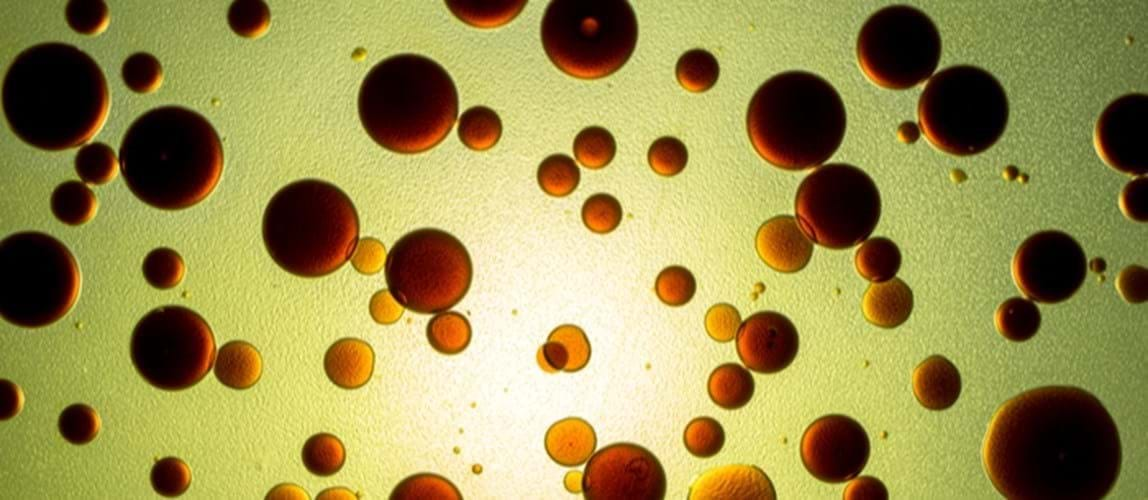Fluid Mixing Processes
Webinar: Dispersion and Emulsification in Agitated Liquid-Liquid Systems: Linking Hydrodynamics to Drop Size

- Date From 26th May 2022
- Date To 26th May 2022
- Price Free of charge, open to all.
- Location Online: 13:00 BST. Duration: 1 hour.
Overview
Emulsions and dispersions are ubiquitous in the chemical process industries and form the basis of many food, pharmaceutical, personal care and other consumer products. An important step in equipment selection is prediction of drop size for a variety of devices ranging from stirred tanks and static mixers to high shear rotor-stator mills and high pressure homogenizers. While these devices are of disparate geometry, their analysis can be put on common ground by connecting drop behaviour to local hydrodynamics.
We begin with scaling arguments for laminar flow where local shear rate governs drop behaviour, and for turbulent flow where the forces acting on drops transition from inertial to viscous as the drop size decreases and local turbulent energy dissipation rate (power per mass) governs drop dynamics. Correlations for mean size and drop size distribution (DSD) will be presented, including the role of surfactants, and approaches to estimate local deformation rates are discussed. Detailed flow field results, both experimental and via CFD, will be presented and related to drop dispersion. Population Balance Models (PBM) are then considered with emphasis on development of kernels for breakage and coalescence rate and use of modern CFD-PBM techniques. Examples will be taken from the authors work as well as others. Limitations and future directions will be discussed.
Speaker
Richard Calabrese, Professor Emeritus, University of Maryland
Richard is Professor Emeritus of Chemical and Biomolecular Engineering at the University of Maryland, College Park, MD USA. Before joining Maryland in 1981, he worked for Pickard, Lowe & Garrick and Stevens Institute of Technology. He received his BS degree from the University of Rochester and his MS and PhD degrees from the University of Massachusetts. Richard’s expertise is in turbulent mixing and multiphase flow, with emphasis on liquid-liquid and solid-liquid dispersion and coalescence, prediction and measurement of particle size distribution, and measurement and CFD simulation of velocity fields in agitated contactors. He is the author of more than 80 publications, has given more than 300 presentations, and is a consultant to numerous chemical and pharmaceutical companies. Until 2019 he was director of the High Shear Mixing Research Program (HSMRP), an industrial consortium that is now part of the Framatome BHR DOMINO consortium. His paper (AIChEJ, 32, 657, 1986)) on break up of viscous drops in turbulent flow was named one of the 21 most influential contributions to Mixing Research.
Richard is a Fellow of the AIChE and has received AIChE’s North American Mixing Forum (NAMF) Award for Sustained Contributions to Mixing Research and Practice (1997). He was Fulbright Senior Scholar and SERC Visiting Fellow at the University of Birmingham (UK), a Visiting Scientist in Particle Science & Technology at the DuPont Experimental Station, and a Technical Adviser in the Office of the Assistant Secretary for Fossil Energy at the US Department of Energy. He has provided input to DOE and its subcontractors on design matters related to slurry transport and mixing in the Hanford (nuclear) Waste Treatment Plant since 2001. Richard has served as chair of AIChE’s Chemical Technology Operating Council and is a member of several national committees. He is a founding member, past Treasurer and Past President of the North American Mixing Forum, and has served as national programming chair and as the Chair of MIXING XV. Rich has contributed to NAMF’s Handbook of Industrial Mixing and has also served as a Subject Editor for Chem. Eng. Res. & Design.
The material presented in this webinar has not been peer-reviewed. Any opinions are the presenter's own and do not necessarily represent those of IChemE or the Fluid Mixing Processes Special Interest Group. The information is given in good faith but without any liability on the part of IChemE.
Webinar archive
This webinar is free of charge and open to all to attend, but if you wish to access the slides and a recording to replay on demand then you'll need to be a member of the Fluid Mixing Processes Special Interest Group.
Back to events